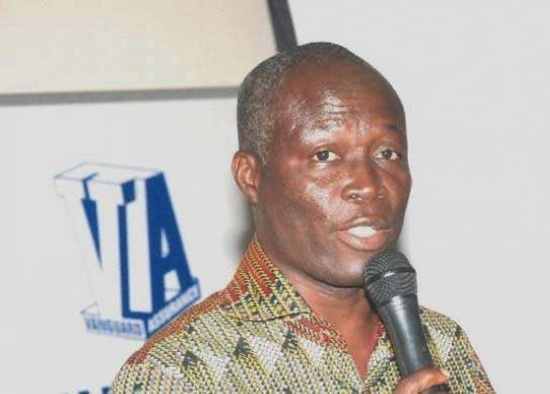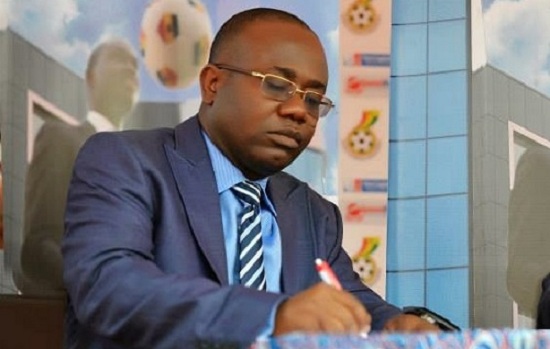
Confusion galore - where is our glory and pride?
This country took off as a mighty and remarkable sporting nation with a lot of promise, and even in the colonial days we displayed our prowess as leaders in sports. Even in the face of continental and global challenges, we showed our potency to the admiration of the world.
The sporting spirit was very much awake and it was no wonder that at the first trial at the Olympic Games after independence which was staged in Rome in 1960, we were not denied a medal as our compatriot Robert Kotei did a wonderful high jump to earn a silver medal.
What really happened after that feat and set things in the downward drive to where we are now cannot be easily explained, and it must be agreed that sports is dynamic, and new records are bound to come up for the future sporting generation to improve upon.

As a talented football nation, the chance to challenge at the continental level for the African Nations Cup (AFCON) was thrown at our feet after the north Africans had dominated over the years, thus hosting it in Kumasi and Accra in 1963. The Egyptians, Ethiopians, the Sudanese, the Tunisians, the Moroccans and the Algerians were clamouring for it, but we had our turn.
Yes, the honour of hosting and winning could not be denied us, as our men stood tall to deliver the title under the captainship of the great Agggrey Fynn.
The beginning was marvellous and we were very proud. No wonder at our silver jubilee celebrations after independence in 1982, we crowned the occasion with the fourth win of the biggest football honour in Africa, and we did it in Lybia.
It must be noted that a nation like Egypt, advanced in civilisation, could then only boast of two previous African Cup honours, and our close friends and neighbours, Nigeria, could also boast of only one victory which took place as they hosted it in 1980.
There was no doubt that we were the beacon of light, and there were many ways to build upon our successes. However from that stage things have sadly changed, and while countries such as Cameroun have equalled our record, the Egyptians have overrun us with seven AFCON trophies.
Sports generally happened to be the best way to sell one's nation, and for that, every country globally is very serious. When our Kenyan, Nigerian, Morrocan, Ethiopian and other close contestants were winning medals at the London Olympic Games in 2012, the lesson we learnt, as usual, was that we would put all the negative tendencies at their proper position and forge ahead for better results in the near future.
Surely, this is a land of theories with all the solutions beautifully displayed on paper, but where are the parameters of the practical aspects that produce results? At the Rio Olympiad four years later, the results were even worse.
Now poor and hungry people with little knowledge to develop what has been left behind have come to fix their pockets, make quick money and live comfortably in big homes with grandeur surroundings far from what their predecessors left behind.
Have you noticed the culture of a people who question why “big men” must mix with people that queue for "trotro" in the streets of Accra and Kumasi? This cuts across all aspects of national development, and is it strange that the sports that we did for pleasure and pride should move from that self-sacrifice to money-consciousness?

The love for patriotism and laurels has automatically derailed into rewards for little efforts.
Really, this unfortunate situation which is causing all the havoc is persisting and getting worse by the day and it is affecting the image of our country at international sporting gatherings. Today, things have gone so low with all the various sports disciplines suffering from budgetary decline year after year to the extent that where our sportsmen and women build their confidence to the highest level to qualify and participate in world tournaments and events, they are shockingly informed that there is no money to send them to places for trials and preparations.
A case in point was the recent qualification of our national Women's Under-17 team, the Black Maidens, who qualified for the World Cup finals staged in Jordan, and were forced under strange circumstances to travel there some weeks in advance, instead of engaging in trials with friendlies because there was no money to support them.
The girls were subjected to all sorts of hardships for financial constraints, but with some wonderful fortitude, they managed to reach the quarter-finals where they lost to the eventual winners, North Korea. Those girls need proper care to improve, as they are our future heroes.
Incidentally, the ripples of the poor state of affair of our girls affected their seniors, the Under-20 women team, the Black Princesses, who qualified for the World Cup tournament slated for Papua New Guinea, but had to suffer for their flight to Australia where they would do their final brush-up and get acclimatised.
Some of such difficulties could be assuaged if we could manage our resources with equanimity and thrift to meet the task they are voted for. The selfish characters are there to suck the nation dry, and they are not giving any good credit to the development of our sports.
The clarion call now seems to be that our sportsmen and sportswomen will do well to emulate their predecessors who, in the decades past, observed the principles of sports as recreation and not a means of making big money to the detriment of the nation. We will not succeed with the modern trend, and for that we must advise ourselves. Let's build that character from home and we stand to gain in future.
